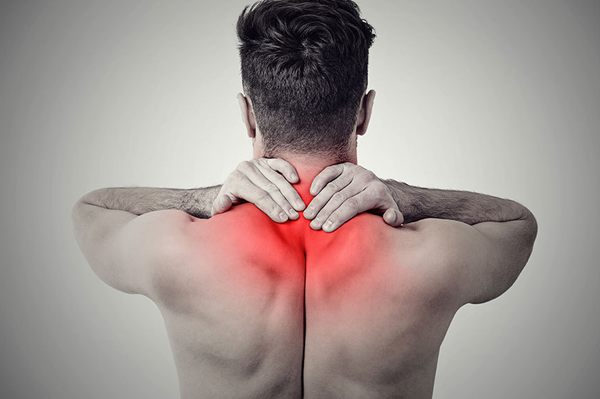Neck Pain

Neck pain is a common condition that affects many individuals at some point in their lives. It can range from mild discomfort to severe, debilitating pain, and it can significantly impact a person's daily activities and overall quality of life. In this article, we will explore the causes, symptoms, and various treatment options available for neck pain.
Causes
- Muscle Strain:- One of the most common causes of neck pain is muscle strain. This can occur due to poor posture, sleeping in an uncomfortable position, repetitive motion, or sudden movements that strain the neck muscles.
- Neck Injuries-: Traumatic events such as car accidents or falls can cause neck injuries, including whiplash. Whiplash occurs when the head is jerked forward and then backward suddenly, straining the neck ligaments and muscles.
- Degenerative Disc Disease-: With age, the discs between the vertebrae in the neck can wear down, leading to degenerative disc disease. This condition can cause neck pain, stiffness, and reduced mobility.
- Herniated Disc-: A herniated disc in the neck occurs when the soft inner material of a spinal disc protrudes through a crack in the outer casing. This can put pressure on the nerves in the neck, causing pain and discomfort.
- Cervical Osteoarthritis-: Also known as cervical spondylosis, this condition involves the wear and tear of the cartilage and bones in the neck. It can lead to neck pain, stiffness, and the formation of bone spurs.
Symptoms
- Pain and Stiffness-: The primary symptom of neck pain is a persistent ache or stiffness in the neck. The pain may radiate to the shoulders, upper back, or arms.
- Limited Range of Motion-: Neck pain can make it difficult to turn the head or move it in certain directions. This limitation in range of motion can impact daily activities.
- Headaches-: Neck pain may be accompanied by headaches, especially when the pain originates from muscle tension or poor posture.
- Numbness or Tingling-: In cases where neck pain is caused by nerve compression, individuals may experience numbness, tingling, or weakness in the arms or hands.
Treatment
- Pain Medication:- Over-the-counter pain relievers such as acetaminophen or non-steroidal anti-inflammatory drugs (NSAIDs) can help reduce pain and inflammation associated with neck pain.
- Heat and Cold Therapy-: Applying heat or cold packs to the affected area can provide temporary relief and help reduce inflammation. Heat therapy promotes blood flow, while cold therapy can numb the area and reduce swelling.
- Physical Therapy-: A physical therapist can provide exercises and stretches to strengthen the neck muscles, improve range of motion, and alleviate pain.
- Posture Correction-: Maintaining good posture, especially when sitting or using electronic devices, can help prevent neck pain. Ergonomic adjustments to workstations and supportive pillows can also be beneficial.
- Neck Braces or Collars-: In some cases, wearing a neck brace or collar for a short period may provide support and relieve strain on the neck muscles.
- Injections-: Corticosteroid injections directly into the affected area may provide temporary relief for severe neck pain and inflammation.
- Surgery-: In rare cases when conservative treatments are ineffective, surgery may be recommended to address underlying structural issues causing neck pain.
